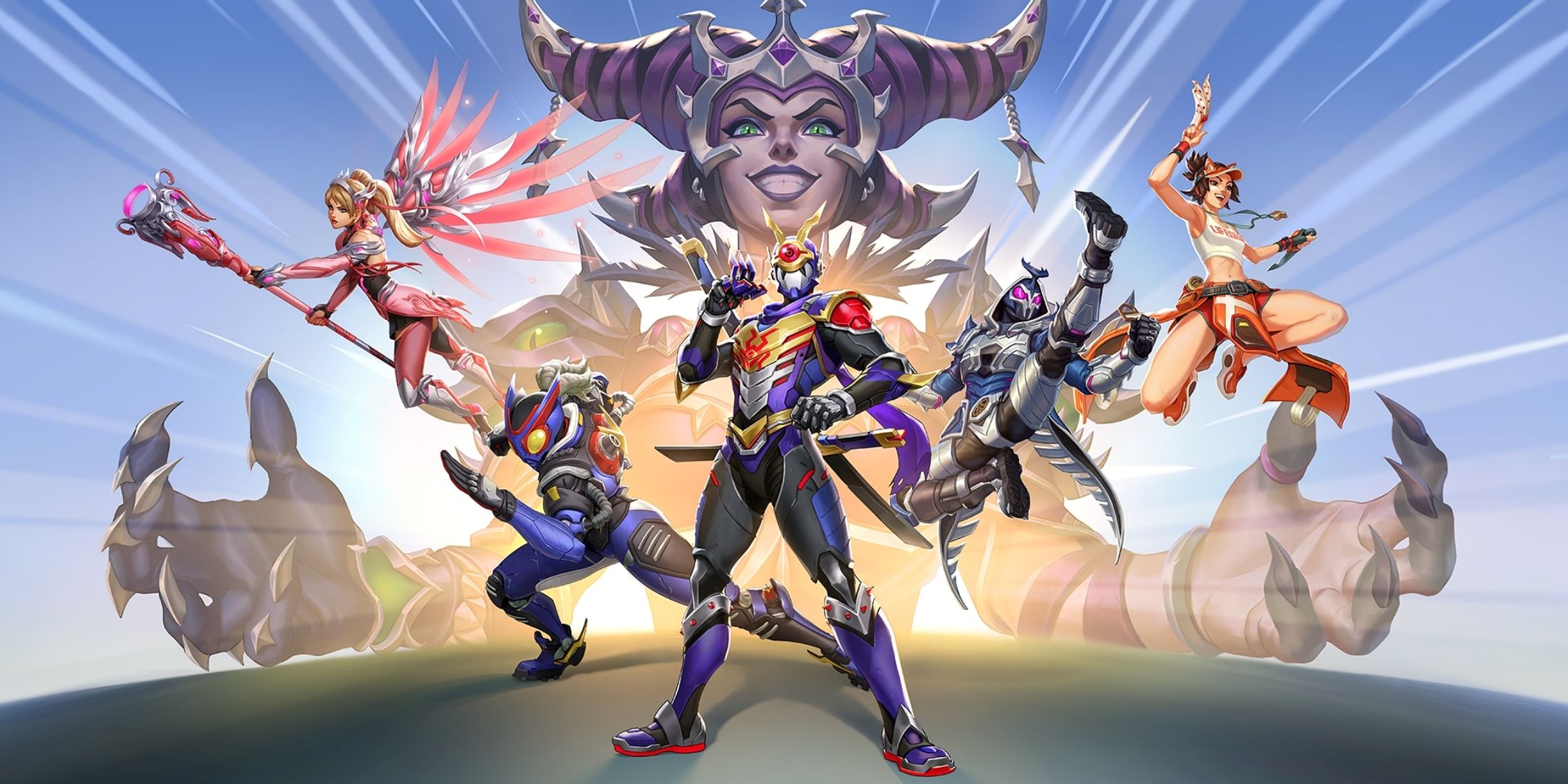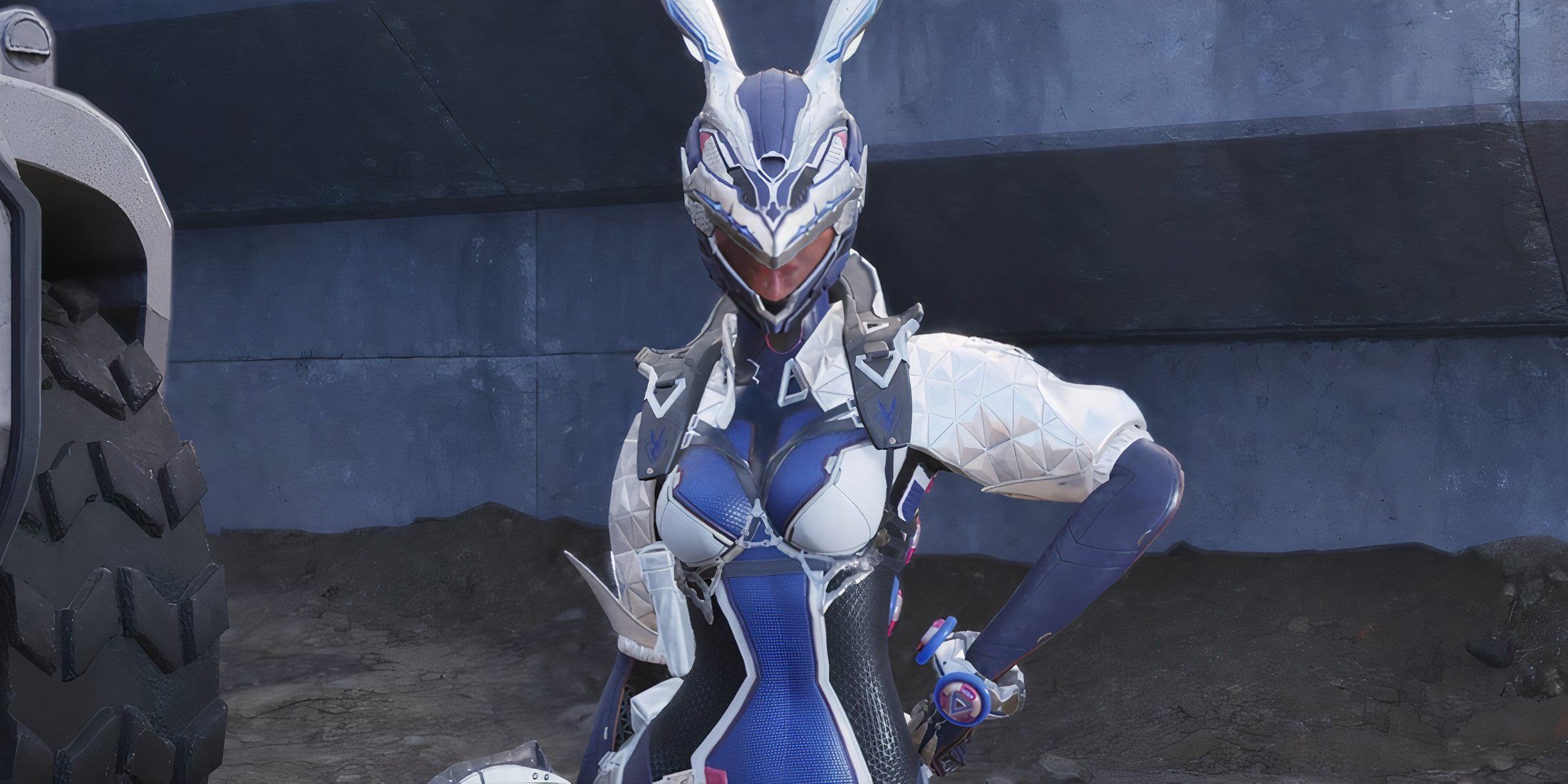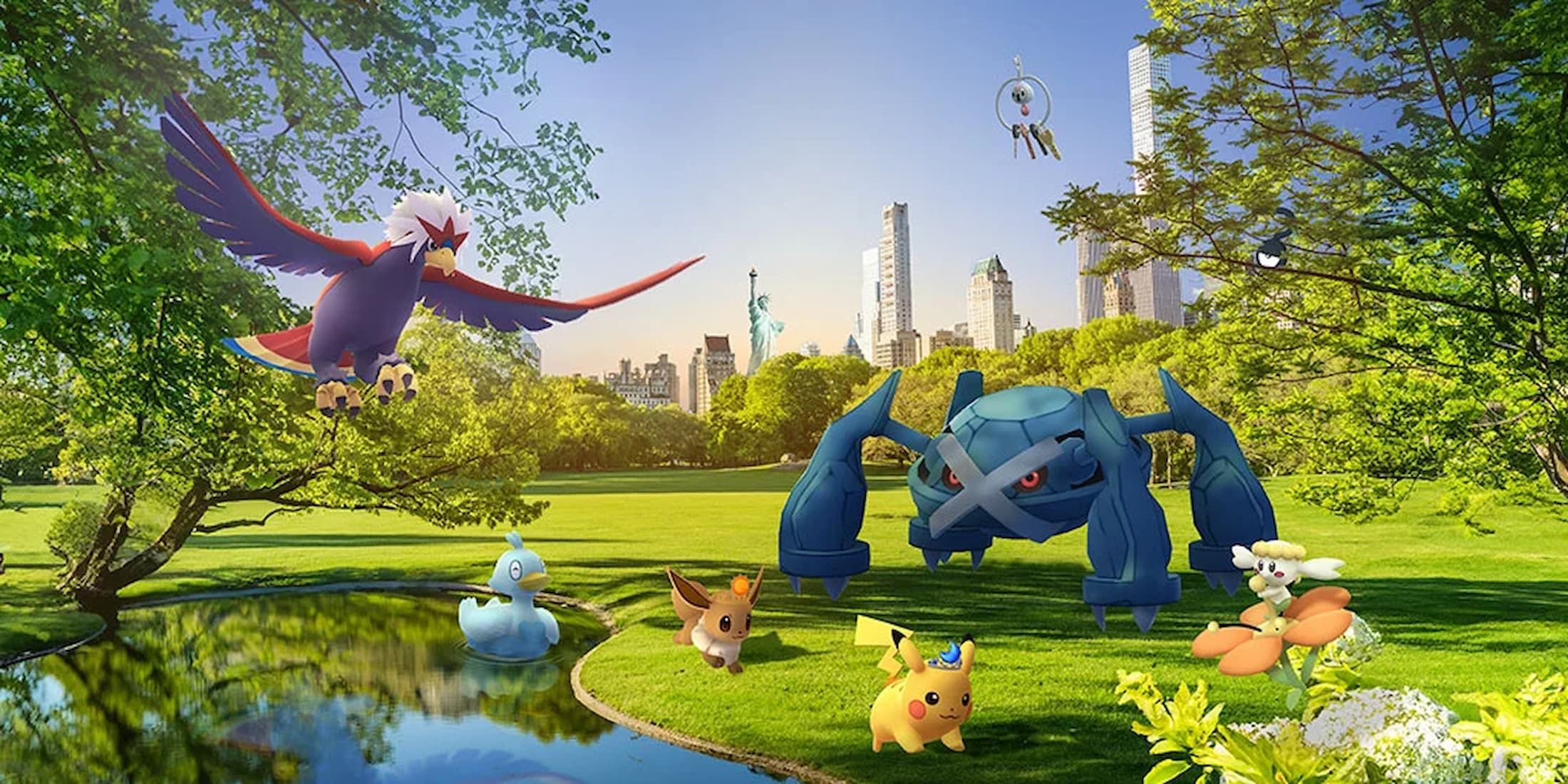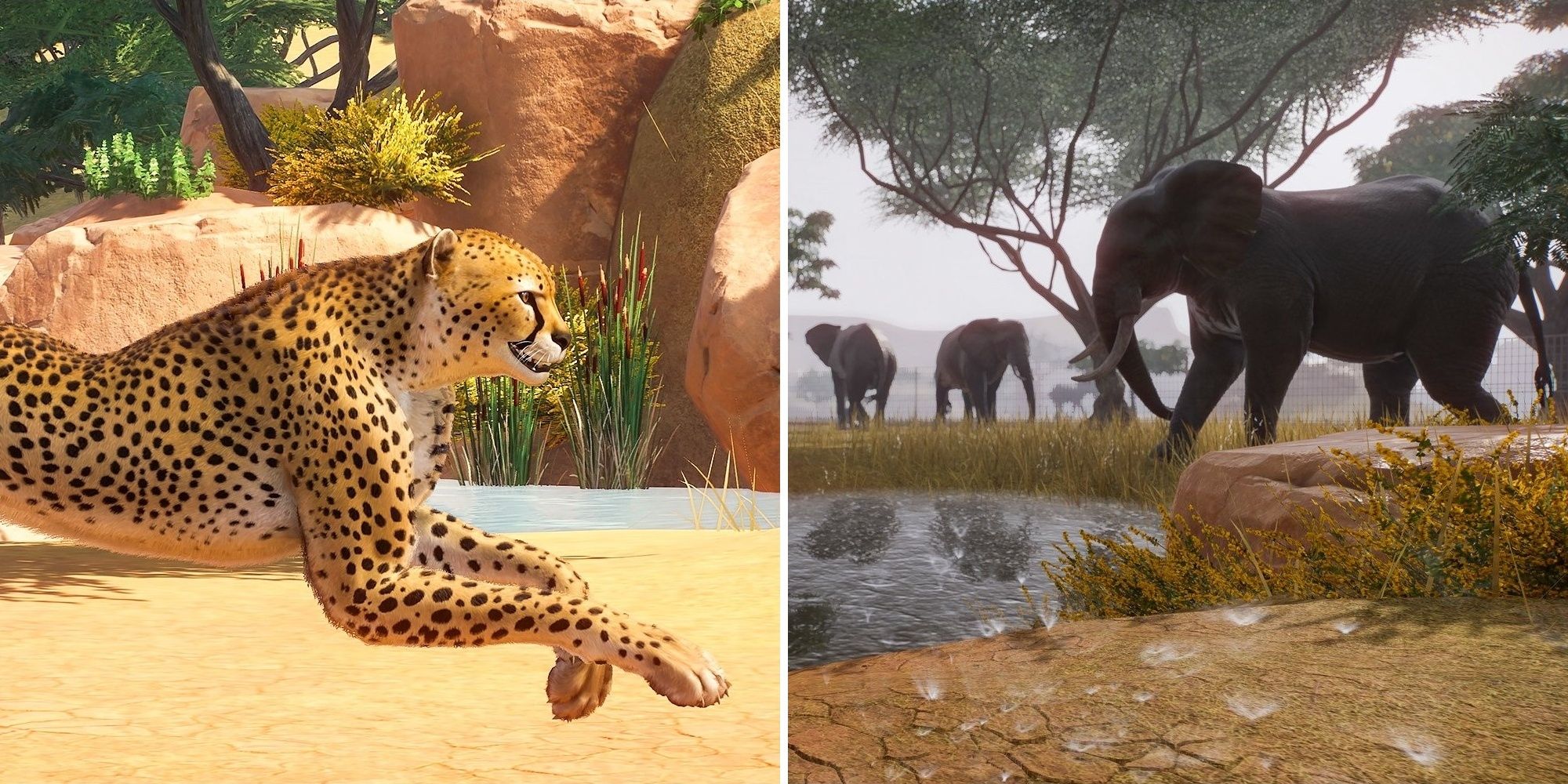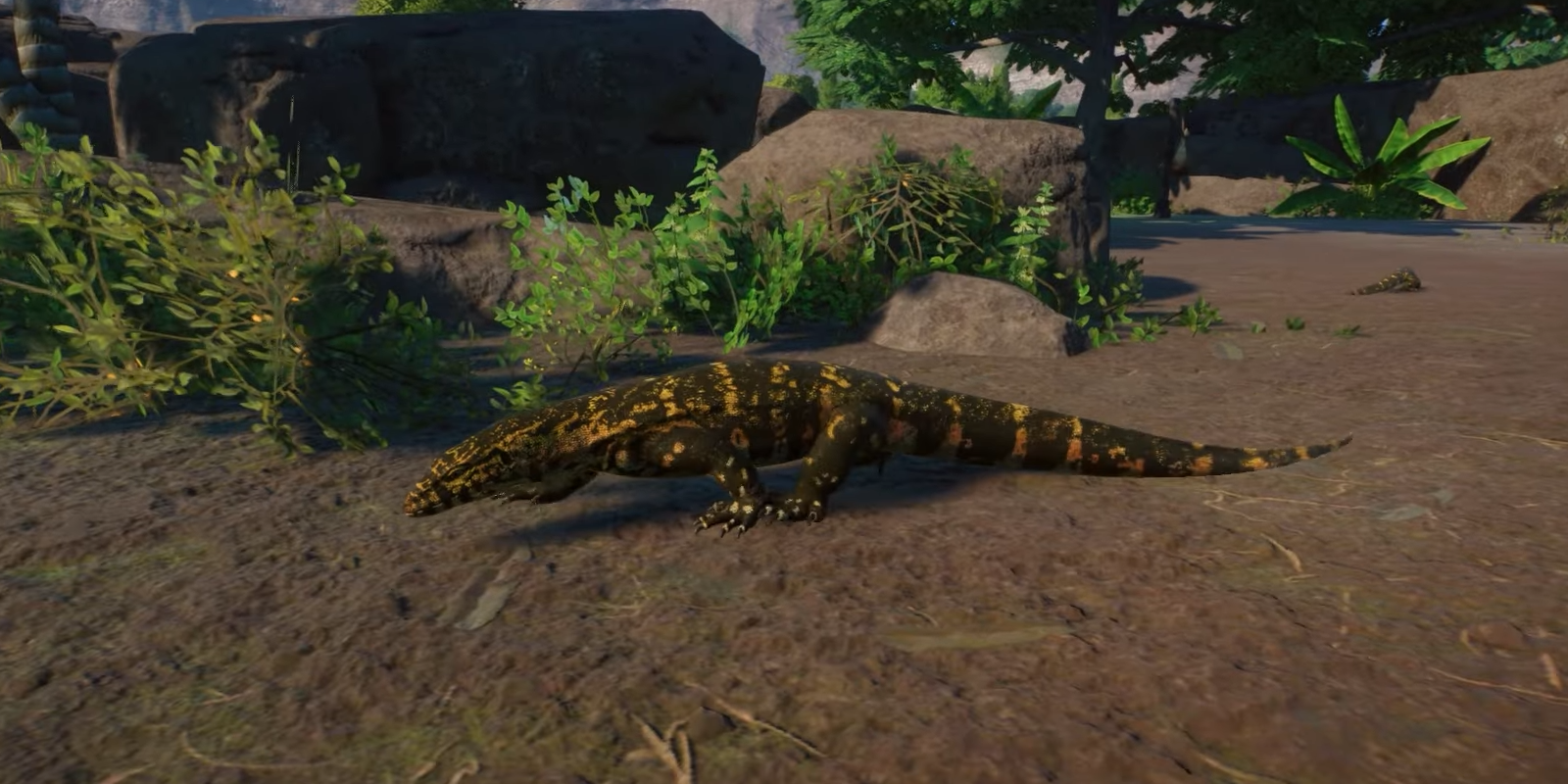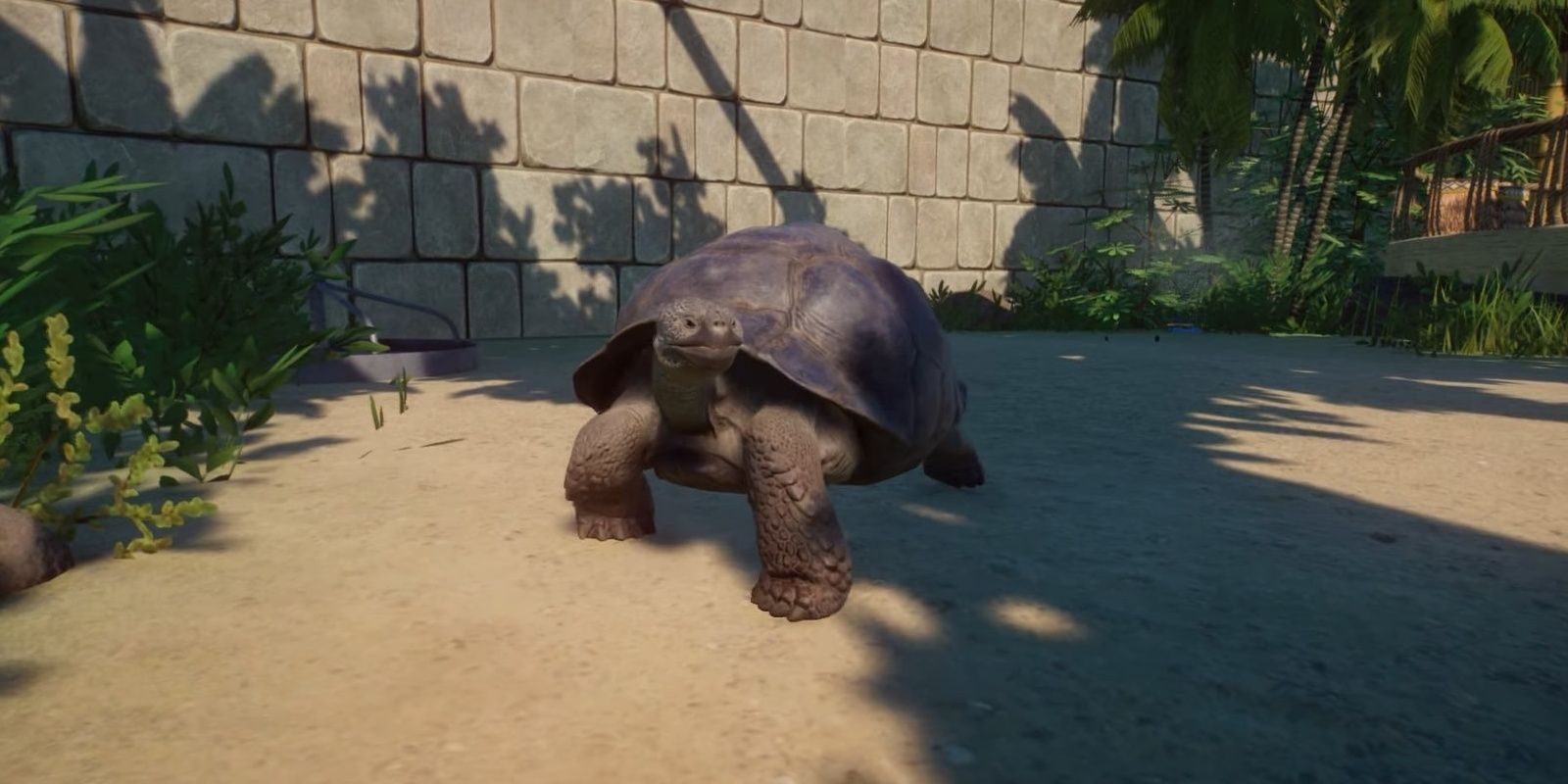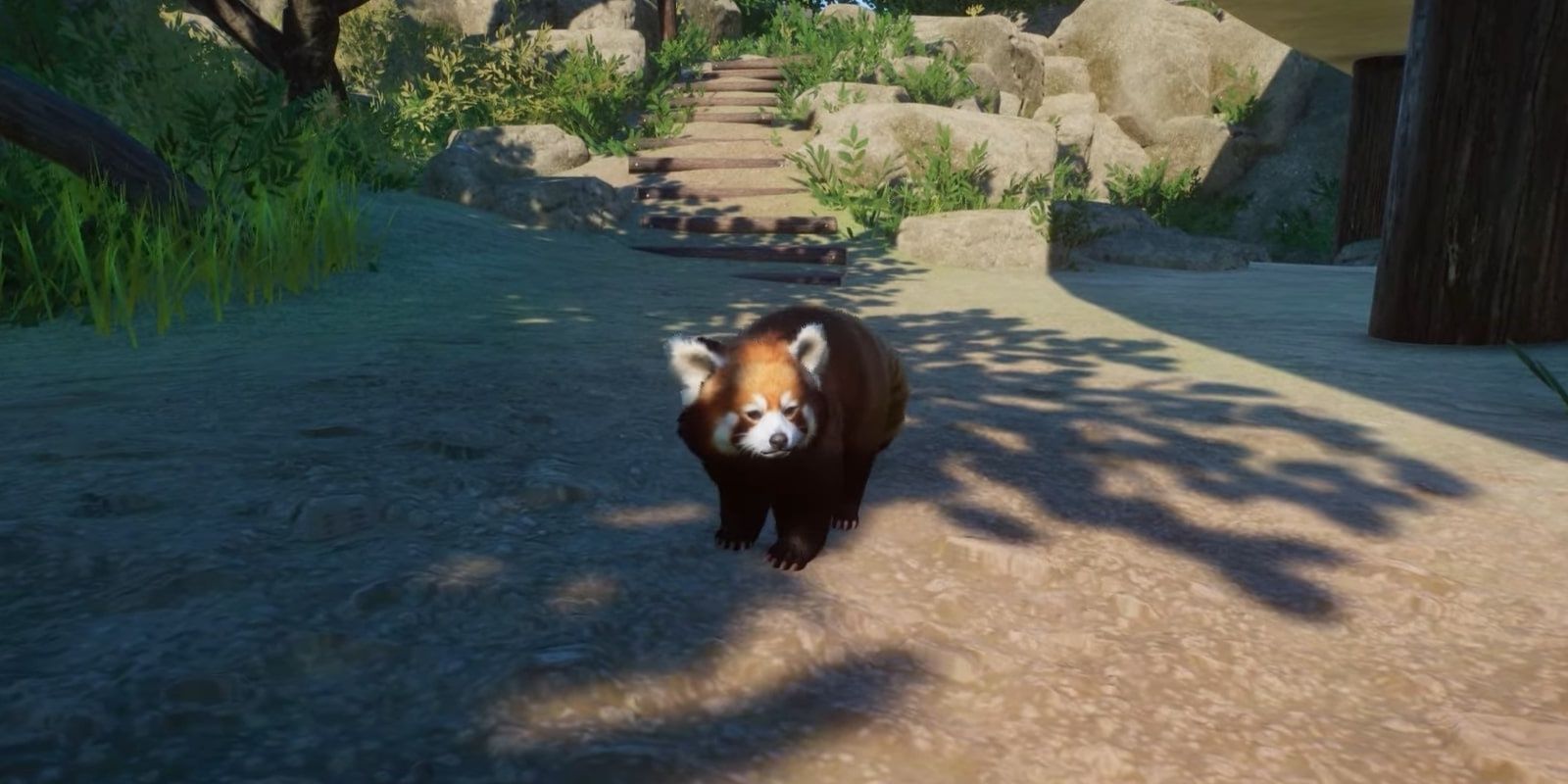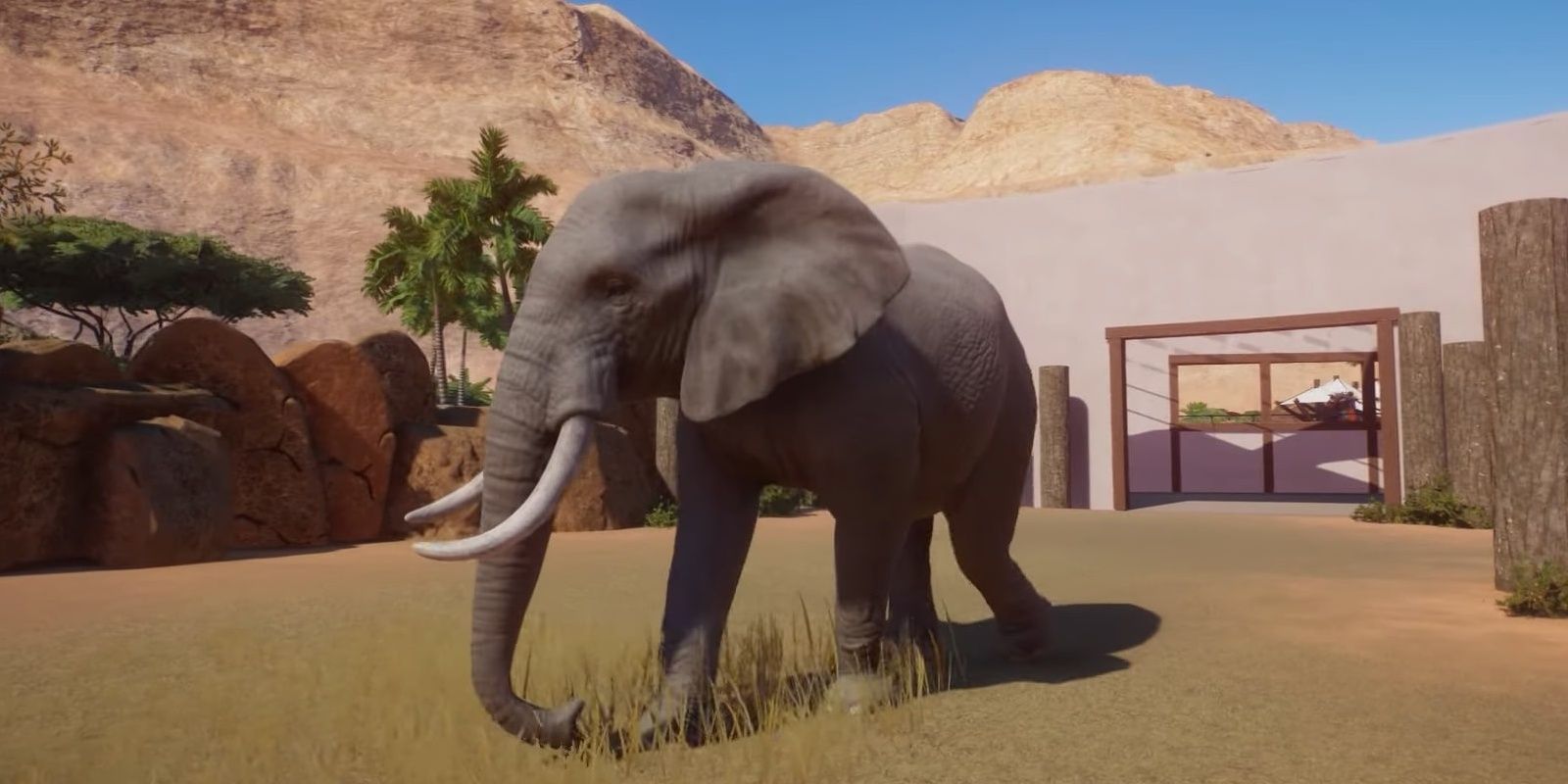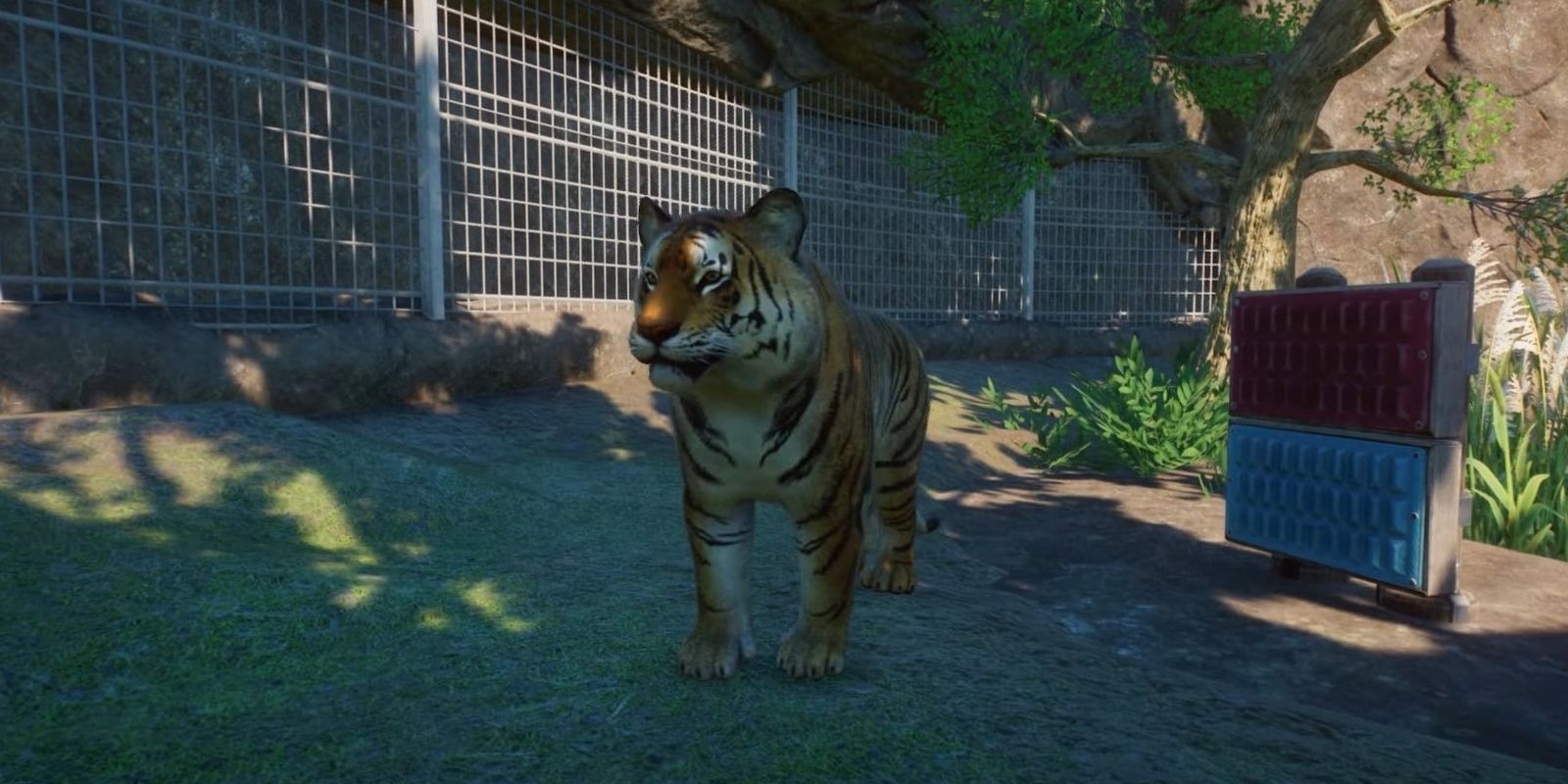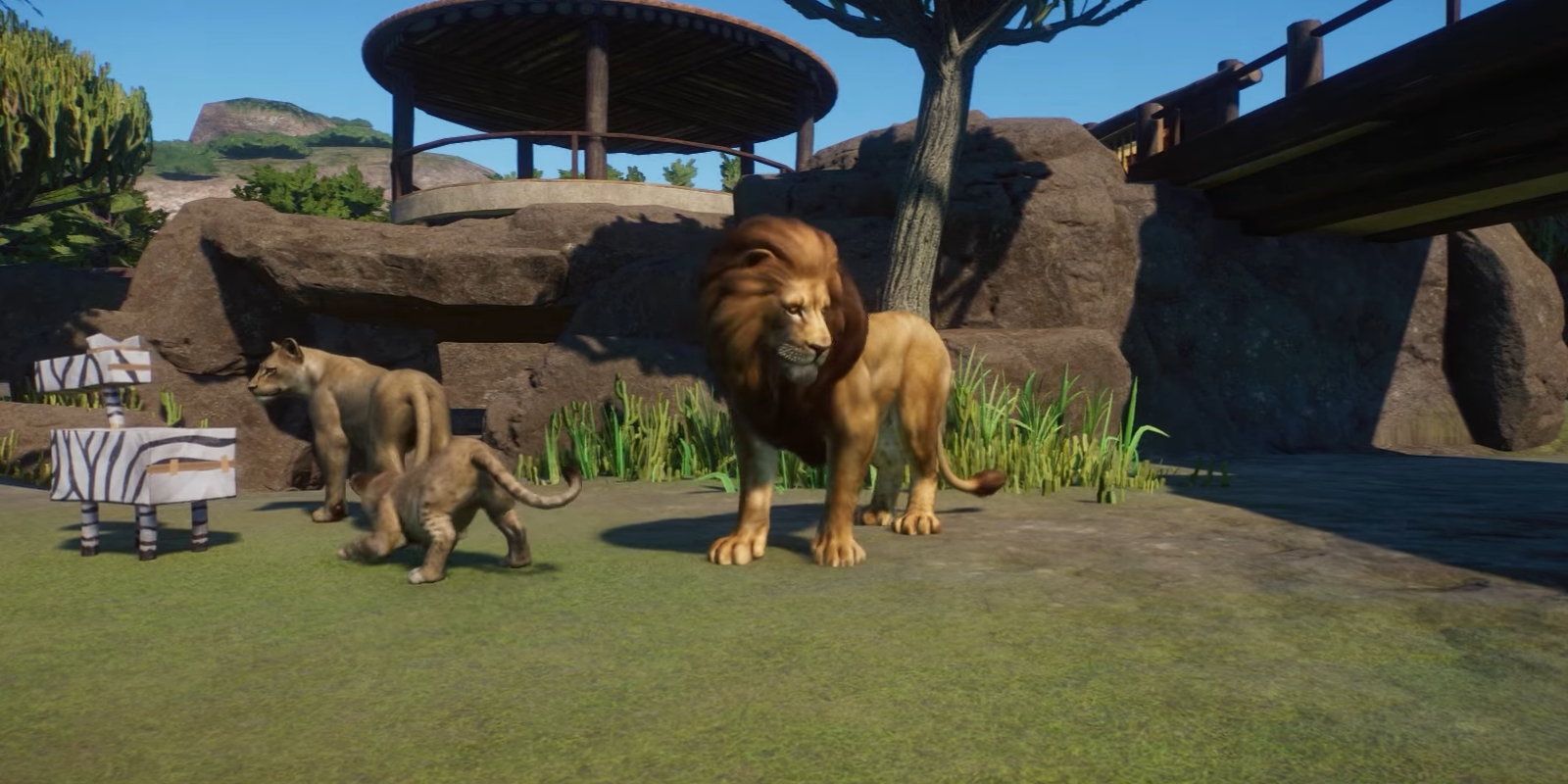It’s not only money that allows players to expand their park in Planet Zoo – it's also conservation credits. These points are granted to players for having happy and healthy animals, running a reputable zoo, and educating their guests as much as possible, and can be put towards purchasing new and rare species for the park.
However, the overall best way to earn conservation credits is by breeding and releasing animals back into the wild. Each species has its own different worth, depending on its endangered status and the type of animal. Naturally, releasing certain animals will earn players a lot more conservation credits than others. As such, here are the best animals to breed and release in Planet Zoo.
7 Nile Monitors
Large lizard-type creatures that favor environments with lots of water, Nile Monitors are great for beginners looking to bring in a steady income. They are classed as a Least Concern species, meaning they aren’t under threat, so players won’t be rewarded with lots of credits for releasing them into the wild.
Despite this, every hatchling sells for a respectable 50 CC, and Nile Monitors are easy to acquire and set up, making them ideal when just starting out in conservation. They breed relatively slowly, with a 10-month incubation followed by 4 years to mature, although adults can breed across their entire life and have multiple litters.
6 Giant Tortoise
Slow and tentative, Giant Tortoises are recognizable from the humungous shell covering their backs. They are classed as Vulnerable, but not Endangered, meaning their worth is higher than many others but still won’t be one of the big credit earners.
Players can release Giant Tortoises for a solid 90 CC. They are slow to reproduce, however, with an incubation period of 8 months and taking a whopping 22 years to reach full maturity. While they may breed their entire lives, females have an interbirth period of 2 years, meaning it will take them a while to have another batch of offspring.
5 Red Panda
Unlike Giant Pandas, Red Pandas are much smaller and have red and white fur. They are classed as Endangered, with species of this type earning much more conservation credits than Least Concern or Vulnerable classifications.
Correspondingly, releasing a Red Panda earns the player a tidy 300 CC. Another bonus is that they reproduce very fast, with an incubation period of only 5 months and a maturity of 1.5 years. They also have a low interbirth period of 12 months, although, unlike other species, they will end up becoming sterile after 15 years of life.
4 African Elephant
The biggest land mammal alive today, African Elephants are gentle giants that are often considered a symbol of wisdom or a sign of good luck. They are classified as Endangered, with numbers estimated at several hundred thousand in the wild.
Reflecting their size and conservation status, each African Elephant releases for a whopping 1200 CC - the only downside is that it takes a long time for them to breed. They have a long incubation period of 22 months and need 15 years to fully mature. While they do remain sterile for life, they also have an interbirth period of a lengthy 108 months.
3 Bengal Tiger
Striped and deadly, these big cats are one of the most recognizable creatures across the world. Like many other species, they are classed as Endangered, with only a few thousand in the wild.
Bengal Tigers can be released for 300 CC on average. They are relatively fast to breed, with only a 3-month incubation period and 4 years to maturity. It is unknown whether they become sterile or not, and they have an interbirth period of 36 months.
2 Cheetah
The speedsters of the animal world, Cheetahs are dotted big cats that can accelerate to exceptional speeds on land. They are classed as Vulnerable, with only 6,000 - 7,000 living in the wild.
Despite this, Cheetahs can be released for a very good 900 CC. What makes them even better is that they have a faster reproduction rate compared to other animals that earn similar amounts of CC, such as elephants. Cheetahs have a 3-month incubation and take two years to achieve full maturity. They become sterile after 12 years and have an interbirth period of 19 months.
1 West African Lion
By far the best animal to earn conservation credits, Lions are one of the most popular and profitable species in Planet Zoo. They are classified as Critically Endangered, with as little as 250 out in the wild. That rarity means players will be able to earn tons of CC by releasing them.
Each Lion goes for around 900 CC, and because they are polygamous, one male can be placed in an enclosure with up to 30 females for players to continually breed them. This, coupled with their fast reproduction rates, will provide a steady stream of conservation credits while also bringing in lots of guests. For generating CC, no other animals can match the potential of the West African Lion.
Planet Zoo is available for Windows.

